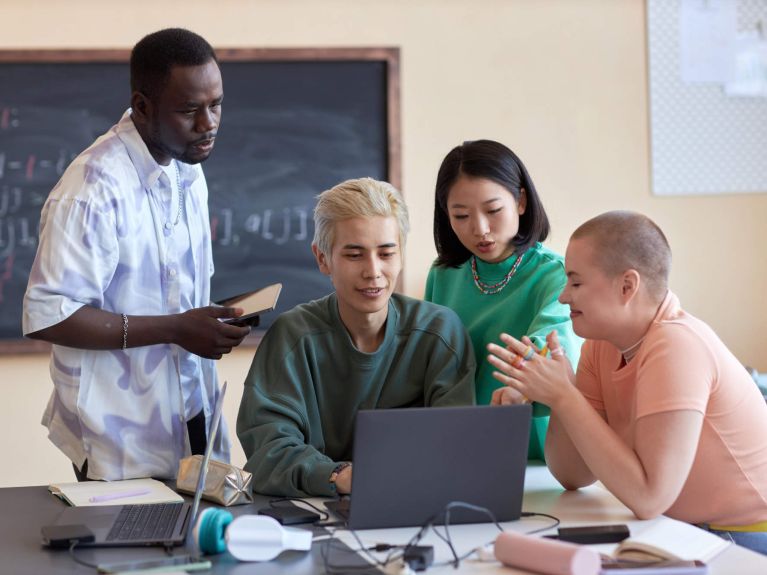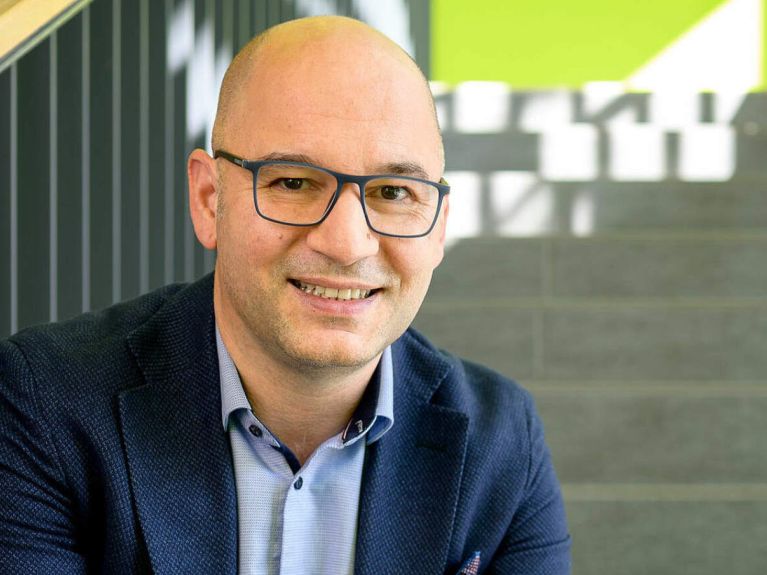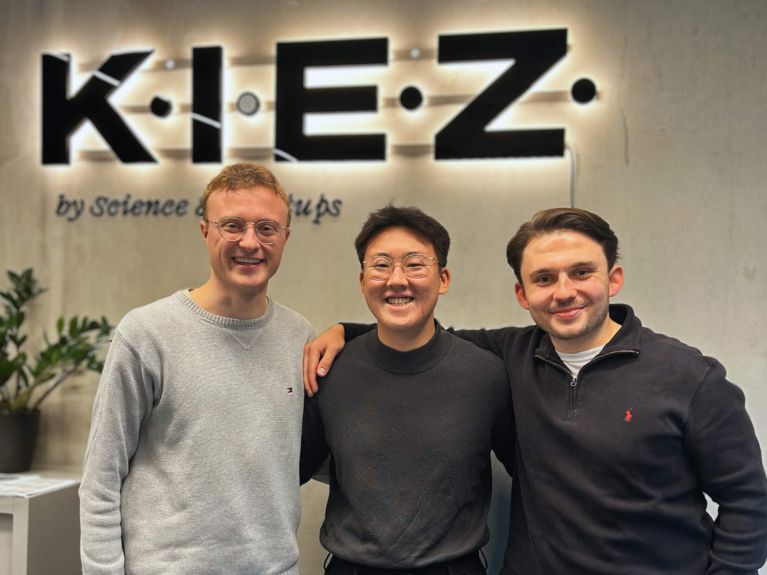Science start-ups – experts report
German university spin-offs draw on ground-breaking research: Two spin-off entrepreneurs talk about their careers.

What is special about German university spin-offs? Professor Emrah Düzel of the University of Magdeburg and Antong Ying of TU Berlin talk about their experience as spin-off entrepreneurs.

Prof. Dr Emrah Düzel, co-founder of Neotiv and Director of the Institute of Cognitive Neurology and Dementia Research at Otto-von-Guericke University Magdeburg
“More than 55 million people worldwide suffer from Alzheimer’s disease. The aim of our digital health start-up Neotiv is to improve early detection of this brain disease. Our main focus is on cognitive digital tests, which we develop ourselves. These enable early medical classification and tracking of memory problems associated with Alzheimer’s disease. Early diagnosis is particularly important, but there’s a major bottleneck here in terms of patient care, too. This was precisely what motivated us to establish our start-up from the University of Magdeburg in 2017. We were encouraged by numerous colleagues here at the university, and we received a lot of support from the university’s Transfer and Start-up Centre. The state of Saxony-Anhalt gave us financial support at a very early stage and we’ve been working with the German Center for Neurodegenerative Diseases for some time. Setting up a company alongside your day-to-day work is a huge additional burden, of course. But there’s nothing that motivates me more than seeing how great research findings can benefit patients and significantly improve the care they receive.”

Antong Yin, co-founder of acemate.ai
“All three of us studied at Technical University (TU) Berlin, where we developed a mobile learning app on one of our courses. We quickly realised that AI would permanently change learning behaviour. We actually had other plans for our careers, but the prospect of starting a spin-off promised a unique opportunity that we didn’t want to miss out on. This project gave rise to acemate.ai – a learning platform that generates interactive learning content such as exams and knowledge graphs based on uploaded documents. Our solution is aimed at students and teachers as well as companies looking for in-company training solutions. The biggest advantage of a spin-off for us is that we’re close to the university and therefore to our target group. Our office is located directly at TU Berlin, so we’re in constant dialogue with students and lecturers and we’re able to gain more in-depth insights into the problems and needs of our users. Thanks to the active support of TU Berlin’s Centre for Entrepreneurship, we’re also able to showcase acemate.ai at various events and job fairs so as to boost our presence in the ecosystem.”


